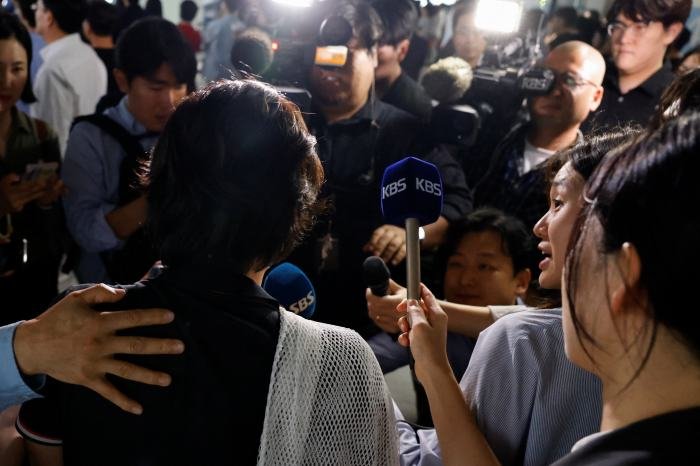South Korea has announced a new investigation into human rights violations concerning Korean workers detained in the United States, signaling a strong stance on protecting its citizens abroad. The presidential office confirmed that officials will review reports of mistreatment and will seek accountability where rights may have been breached.
The move comes after growing concern from families and advocacy groups who claim that Korean nationals have faced unfair treatment during detention. South Korean authorities said they are committed to ensuring that workers’ rights are respected, no matter where they are employed. “Protecting our people is not optional—it is a duty,” a government spokesperson said, emphasizing the importance of the probe.
The investigation is expected to involve coordination between Seoul’s foreign ministry, legal experts, and international labor rights organizations. Officials noted that the review will also assess the broader conditions faced by migrant workers in detention systems, highlighting systemic issues beyond individual cases.
The announcement has sparked debate in both countries, with U.S. officials insisting that all detainees are treated under established legal frameworks. However, rights advocates argue that gaps remain, especially in language access, legal representation, and working conditions for foreign nationals.
Alongside its human rights probe, South Korea is taking a more cautious approach to ongoing trade negotiations with the U.S. and other partners. The presidential office made clear that it would push back against any deals that place local companies at a disadvantage. Policymakers argue that previous agreements have sometimes created imbalances, putting domestic industries under pressure from foreign competition.
Officials in Seoul are now adopting a firmer stance to protect local economic interests. Negotiators say they will demand “fair and reciprocal terms” in upcoming discussions, a shift from past strategies that often prioritized speed over balance. Industry groups in South Korea have welcomed the approach, noting that it could help secure better protections for small and mid-sized businesses.
The dual announcements—on human rights and trade—reflect the government’s broader effort to strengthen national resilience amid global uncertainty. Analysts say the moves show that Seoul is not only standing up for its citizens abroad but also reassessing economic policies to ensure long-term stability at home.
Observers note that the South Korea human rights probe could have diplomatic implications. While it underscores the government’s responsibility to defend its citizens, it also risks creating friction in U.S.-South Korea relations if findings highlight serious violations. Diplomats suggest that careful communication will be key to balancing accountability with the preservation of a strong alliance.
For many South Koreans, the investigation offers reassurance that their government is willing to act on cases of mistreatment overseas. Advocacy groups stress that continued vigilance is needed, pointing to other incidents involving overseas workers in recent years. They argue that Seoul must establish permanent mechanisms for monitoring and intervention, rather than responding only to crises.
Meanwhile, the trade policy shift signals that South Korea is entering negotiations with greater assertiveness. As global supply chains face disruptions and protectionist policies grow more common, experts say this approach may help Seoul secure stronger guarantees for domestic companies. However, it could also slow progress on deals if partners resist concessions.
The South Korea human rights probe and trade stance highlight a government eager to defend both its people and its economy. Whether dealing with vulnerable workers abroad or businesses at home, Seoul is positioning itself as a proactive player in safeguarding national interests in a changing global landscape.







